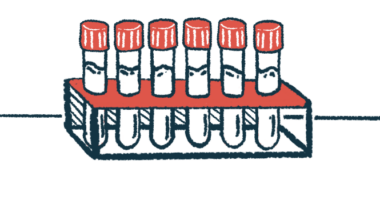EMA Grants Orphan Product Designation to Potential SMA Add-On Therapy Reldesemtiv

The European Medicines Agency (EMA) has granted orphan medicinal product designation to reldesemtiv, a potential add-on therapy for patients with spinal muscular atrophy (SMA).
Reldesemtiv, developed by Cytokinetics and Astellas, is meant to complement existing SMA treatments. It is a fast skeletal muscle troponin activator designed to improve muscle contraction by slowing calcium release from regulatory proteins (troponins) in skeletal muscle fibers.
The therapy has shown pharmacological activity and suggested efficacy in disorders associated with skeletal muscle weakness and fatigue. Besides SMA, it is also being studied as a treatment for amyotrophic lateral sclerosis.
This designation, adopted by the European Commission and based on an opinion by the EMA’s Committee for Orphan Medicinal Products, is meant for medicines that are designed for the diagnosis, prevention, or treatment of life-threatening or chronically debilitating conditions affecting less than five in 10,000 persons in the E.U., or that have development and commercialization costs unlikely to be covered by the expected sales.
Financial incentives include fee reductions, protocol assistance from the EMA, a centralized marketing authorization, and 10 years of marketing exclusivity after approval.
The U.S. Food and Drug Administration had reached a similar decision in 2017.
“We’re pleased that reldesemtiv received orphan designation from the European Commission,” Fady I. Malik, MD, PhD, Cytokinetics’ executive vice president of research and development, said in a press release.
SMA is caused by a faulty SMN1 gene, which significantly reduces the levels of a protein known as SMN in motor neurons and leads to rapid cell loss. Despite advances with therapies intended to boost SMN protein levels, such as Spinraza (nusinersen, by Biogen) and Zolgensma (onasemnogene abeparvovec-xioi, by Novartis), SMA patients may still have residual muscle impairment and weakness, Malik said.
“Treatment with reldesemtiv,” he added, “may represent an additive and complementary approach to increase muscle function.”
Such benefits have recently been shown in mice given reldesemtiv and Spinraza, or the investigational therapy SMN-C1 (an analogue to risdiplam) — an oral medicine being developed by Roche, its subsidiary Genentech, in partnership with PTC Therapeutics and the SMA Foundation.
Results of a Phase 2 trial (NCT02644668) showed that treatment with reldesemtiv improved exercise capacity and respiratory muscle strength of patients with SMA types 2–4, who received one of two doses (150 mg and 450 mg) twice daily or a placebo.
In addition, preclinical studies have shown that using a skeletal muscle activator can increase muscle strength, and delay the onset and reduce the degree of muscle fatigue.







